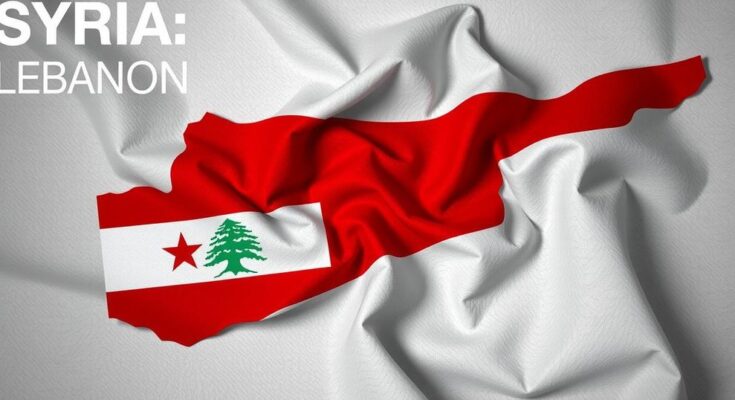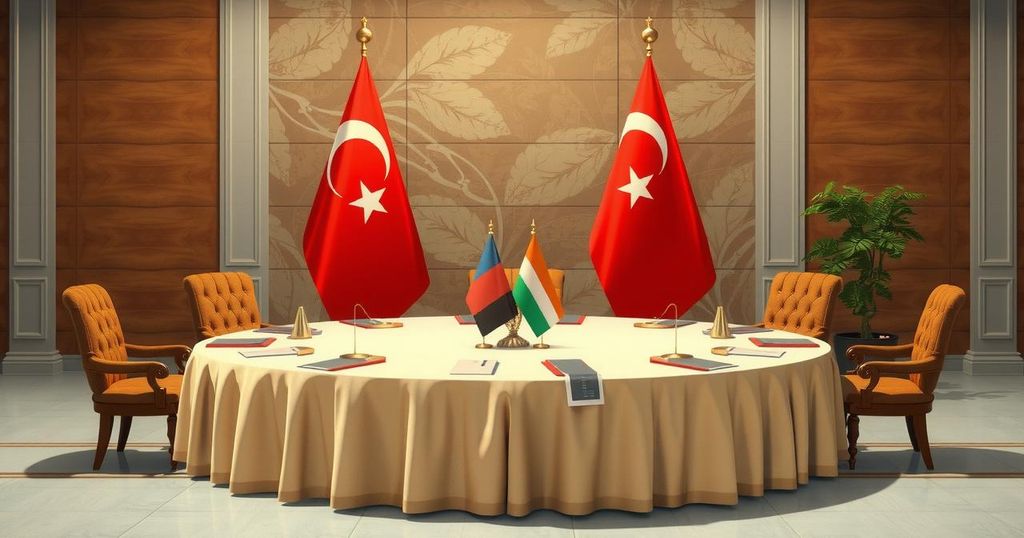Hay’at Tahrir al-Sham (HTS) announced that Syria will not interfere negatively in Lebanon’s affairs, assuring respect for Lebanon’s sovereignty. HTS leader Ahmed al-Sharaa, addressing Druze leaders, emphasized neutrality and the importance of stability in the region. This statement comes amid ongoing efforts to normalize relations post-civil war and follows a complex historical relationship between the two countries.
On Sunday, Hay’at Tahrir al-Sham (HTS) articulated that Syria will refrain from any negative interference in Lebanon’s domestic matters. HTS leader Ahmed al-Sharaa, also recognized as Abu Mohammed al-Jolani, assured visiting Druze leaders, including Walid and Taymour Jumblatt, that Syria is committed to respecting Lebanon’s sovereignty and independence. After the recent overthrow of former President Bashar al-Assad, Sharaa emphasized that Syria would maintain a neutral stance towards all Lebanese factions while acknowledging the historical tensions in the relationship between the two nations.
The intertwined history of Syria and Lebanon dates back decades, marked most notably by Syria’s military presence in Lebanon from 1976 until 2005. The ongoing Syrian civil war since 2011 has exacerbated these ties, resulting in hundreds of thousands of Syrian refugees entering Lebanon. Walid Jumblatt’s recent visit to Damascus represents a significant diplomatic engagement between Lebanon’s Druze leaders and Syria’s new leadership. Notably, the Druze community has faced challenges in both Syria and Lebanon, including violence from various groups.
HTS has a complicated past, notably being implicated in a fatal sectarian attack on Druze citizens in 2015, which adds layers of complexity to their current statements and relationships. The call for non-interference is a significant statement aimed at normalizing relations and fostering stability in a region significantly affected by conflict and upheaval.
The meeting marks a potential shift in approaching Lebanon’s relations with Syria, as both nations look to navigate the challenges presented by their shared history and contemporary political realities.
“It will keep an equal distance from everyone” in Lebanon, Mr. al-Sharaa stated, highlighting HTS’s intent to adopt a neutral stance regarding Lebanese internal politics, while addressing concerns that Syria has historically been a “source of fear and anxiety” in the region.
The relationship between Syria and Lebanon has been historically complex, characterized by significant political, social, and military entanglements. From 1976 to 2005, Syria maintained a military presence in Lebanon, profoundly influencing the latter’s political landscape. The Syrian civil war that erupted in 2011 subsequently led to an influx of Syrian refugees into Lebanon, further complicating the bilateral relationship. The Druze community’s role in both countries has faced significant challenges, particularly from extremist groups and previous regimes. Recent developments, particularly HTS’s statements following the fall of Assad, demonstrate efforts to recalibrate Syria’s diplomatic stance towards Lebanon. The meeting between Druze leaders and HTS signifies an attempt to bridge bridges and address the ghosts of the past while seeking a more stable coexistence moving forward.
In summary, HTS’s recent assertion that Syria will not interfere negatively in Lebanon’s affairs indicates a noteworthy shift in regional dynamics. This statement, coupled with the ongoing normalization efforts, reflects a broader desire for stability and cooperation after years of conflict. As Lebanon grapples with its socio-political challenges, the commitment from Syria could redefine diplomatic relations and set the tone for future interactions between the two nations.
Original Source: www.middleeasteye.net




